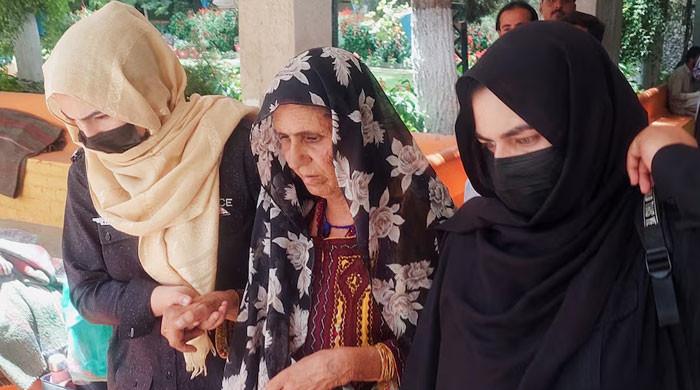Outrage as Video of Honour Killing in Balochistan Surfaces
A disturbing video depicting the alleged honour killing of a woman and her partner in Balochistan’s Dagari region has sparked widespread condemnation. The incident has drawn attention to deeply entrenched tribal customs and fueled demands for justice in a country where such acts often go unpunished.
While Pakistan witnesses numerous honour killings annually, frequently met with limited public or legal repercussions, the footage of a woman and man, accused of infidelity, being executed in the desert has ignited public anger.
The video captures the moment Bano Bibi is shot by a man identified by law enforcement as her brother. “Walk seven steps with me, then you can shoot me,” she is heard saying before taking a few steps and turning her back to the men.
Jalal Satakzai, the brother, then shoots her multiple times, resulting in her collapse. Shortly after, he fatally shoots Ehsan Ullah Samalani, the man Bano was allegedly involved with.
The video’s rapid spread online triggered swift governmental response and condemnation from politicians, human rights organizations, and religious leaders.
However, civil rights advocate Jibran Nasir contends that the government’s reaction is more of a public display than a genuine pursuit of justice.
“The crime occurred months ago, near a provincial capital, yet remained unaddressed until the video was seen by millions,” he stated. “This is a response to a viral moment, not to a crime.”
Police have made 16 arrests in Balochistan’s Nasirabad district, including a tribal leader and the woman’s mother.
Gul Jan Bibi, the mother, claimed the killings were carried out by family members and local elders following “age-old Baloch traditions,” and not at the behest of the tribal chief.
“We committed no sin,” she asserted in a video statement. “Bano and Ehsan were killed according to our customs.”
She added that her daughter, a mother of five, had eloped with Ehsan and returned after nearly a month.
Authorities have indicated that Bano’s younger brother, the shooter, is still at large.
Balochistan’s Chief Minister, Sarfraz Bugti, has called it a crucial case and pledged to dismantle unlawful tribal courts operating outside the bounds of the law.
Police initially reported that a jirga, an informal tribal council known for issuing extrajudicial rulings, had ordered the killings.
The video triggered online outrage, with hashtags such as #JusticeForCouple and #HonourKilling gaining traction. The Pakistan Ulema Council denounced the killings as “un-Islamic” and called for terrorism charges against those involved.
Civil society members and rights activists staged a demonstration in Quetta, demanding justice and an end to parallel justice systems.
Cultural anthropologist Arsalan Khan noted the dual nature of virality, stating, “It can pressure the state into action, but public spectacle can also serve to restore perceived family honour in the eyes of the community.”
Pakistan officially outlawed honour killings in 2016, closing a loophole that allowed perpetrators to evade punishment if pardoned by family. However, rights groups argue that enforcement remains weak, particularly in rural areas where tribal councils wield considerable influence.
The Human Rights Commission of Pakistan reported numerous honour killings in 2024, with women being the primary victims, often killed by relatives seeking to defend family honour.
Arsalan Khan criticized the government for weakening the judiciary and considering reviving jirgas in former tribal areas, rather than enforcing existing laws.
Prime Minister Shehbaz Sharif has directed senior ministers to assess proposals to revive jirgas in Pakistan’s former tribal districts.
The Balochistan killings were discussed in Pakistan’s Senate, with the human rights committee condemning the violence and demanding action against those who convened the jirga.
Lawmakers cautioned that impunity for parallel justice systems could encourage similar acts of violence.
However, activists and analysts believe that the current outrage is unlikely to last.
Human rights lawyer Jalila Haider lamented the lack of enforcement and the prevalence of silence in many areas, emphasizing that condemning jirgas is insufficient.



Comments (0)
No comments yet. Be the first to comment!
Leave a Comment